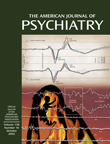The flyleaf of this book, authored by many well-credentialed people, states that it complements the
Oxford Textbook of Palliative Medicine (1). It has two forewords and one preface. There are 43 contributors and 28 chapters. The majority of the authors are from the United States; most of the remainder are from Canada, with a couple from the U.K. and one from Israel. A little more than half of the authors are medical doctors; the rest are psychologists, nurses, and social workers. This is a serious book.
Repetition is inevitable in such a lengthy, authoritative textbook about a highly specialized activity, but the repeated points are important ones. Thus, those of us who read it from cover to cover will benefit from the retelling.
Part 1 has seven chapters grouped under the heading Psychiatric Complications of Terminal Illness. Chapter 3, “Diagnosis and Management of Depression in Palliative Care,” is comprehensive without presenting new material. Chapter 6, “Delirium in the Terminally Ill,” is tight and punchy and mentions sedation with the anesthetic propofol.
Part 2 has four chapters grouped under the heading Symptom Management. Chapter 8, “Physical Symptom Management in the Terminally Ill: An Overview for Mental Health Professionals,” includes pain of course, as does chapter 9, “Psychiatric Aspects of Pain Management in Patients With Advanced Cancer and AIDS.” This is a weakness of the book, perpetuation of the brain-mind division. Naturally, these chapters deal with many of the same subjects. Pleasingly, both give permission to use stimulants. In chapter 11 there is consideration of “the mechanism by which psychological distress is transduced into fatigue.” Again, the supposed brain-mind division emerges and, in this instance, quite misleadingly. In a revision the authors might consider the term “organism distress.” The authors helpfully inform us that when stimulants are used, the rate of discontinuation due to side effects is less than 10%. If I were to be stranded on a desert island and could only take one chapter of this book, I would pick chapter 8.
Part 3 has five chapters on Psychotherapeutic Intervention and Palliative Care. Chapter 13, “Existential Psychotherapy in Palliative Care,” is esoteric, reminding us that Nietzsche advised separating from our own thoughts. It is doubtful that most dying people are in a position to pursue this advice. Chapter 14 summarizes the supportive relationship for dying patients. In chapter 15, cognitive behavior therapy lays claim to relaxation training, hypnosis, and other techniques that antedate the main body of cognitive behavior therapy by 50 years.
Part 4 has two chapters on Pediatric Palliative Care. Despite my claim to have read every page in the book, I skim-read these; such is my personal difficulty with this area.
Part 5, Family and Staff Issues, has four chapters and involves much repetition. Chapter 21, “Burnout and Symptoms of Stress in Staff Working in Palliative Care,” does not provide an adequate definition of the term “burnout,” whose time appears to have passed. It gives a picture of a trunk and branch system of a tree, designating it “A Visual Model of Hospice Nursing,” and a picture of a plant root system, designated “The Root of Hospice Caregiving.”
In part 6, Ethical and Spiritual Issues, which has four chapters, chapter 24, “Addressing the Needs of the Patient Who Requests Physician-Assisted Suicide or Euthanasia,” is a useful piece of work that makes no pretense at having found the answers. This chapter is quite similar to chapter 4 in part 1, “Suicide, Assisted Suicide, and Euthanasia in the Terminally Ill.”
Part 7 has two chapters on Research Issues and is weak. Chapter 27 states that “audit of the psychiatric aspects of palliative care is underdeveloped” and recommends remedial action. Chapter 28 is a mere five pages long (including references). It acknowledges the lack of research in the field but is optimistic about the opportunities for research in the future.
This is a valuable reference book for the libraries of universities, hospitals, and workers in this highly focused field. It does not set out to be an easy-to-read introduction for the general psychiatrist and does not accidentally achieve that end.

